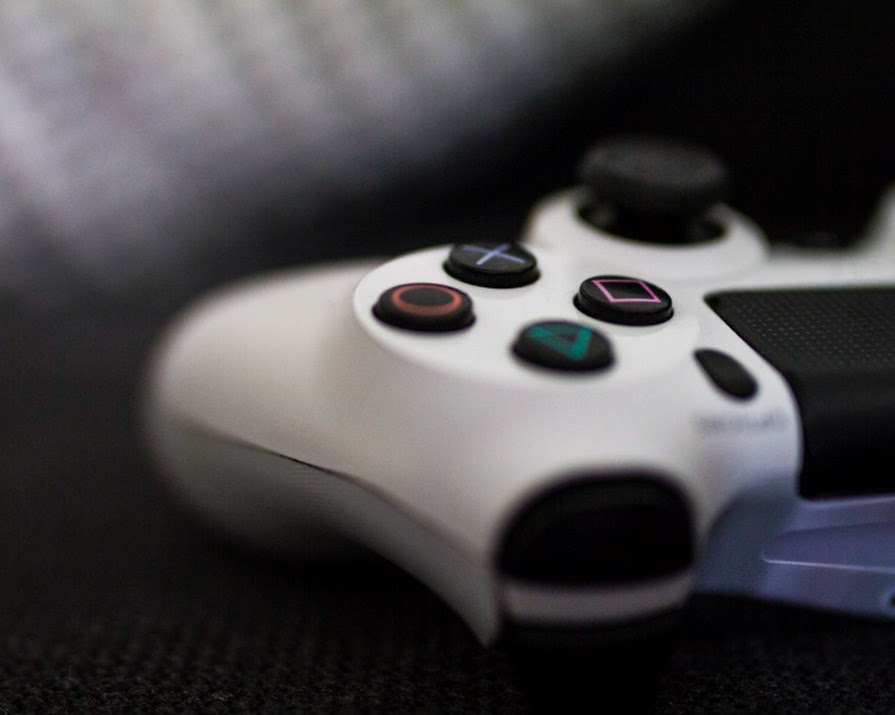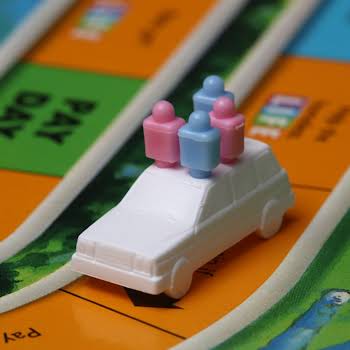
By Amanda Cassidy
05th Aug 2019
05th Aug 2019
The WHO recently classed gaming addiction as a mental health disorder. But some experts have criticised the decision describing it as ‘premature.’ Amanda Cassidy looks at how the rise of gaming is affecting our children and asks if including ‘gaming disorder’ in its latest disease classification risks pathologising a behaviour that is harmless for most?
For every generation, there has always been something for parents to freak out over. For mine it was Judy Blume and slam books, for others it was the den of iniquity that was the disco, Wesley. For some, it was the controversy over Ask FM.
Children are naturally drawn to the latest, greatest and most controversial show in town. This time, it’s all about the dangers of the online world – in particularly the video game, Fortnite.
But recent developments suggest this isn’t just another case of hysterical parents banging their nagging drums – Online gaming addiction has been classified as a mental health disorder and our children are most at risk.

No escape
Social phobia, anxiety, bad grades, depression, violence and irritability are just some of the signs now associated with gaming addiction. It is a relatively new area of behavioural study with process addictions (without the use of a substance) including exercise, sex, eating, shopping and internet use. The controversy lies in the fact that the grey area between normality and addiction is just so, well, grey.
Related: The sinister side of YouTube kids
Studies have shown that these addictions share the same clinical and neurobiological traits as substance addiction. Children are particularly vulnerable when it comes to getting hooked on gaming – especially when it comes to games like the popular, Fortnite. Just a year after it was first released, this game of survival now boasts 125 million players worldwide. Players create their own hero avatar and fight against each other using weapons on a dystopian island. The idea is to be the last one standing and players can form teams with other players to help them complete their mission. This open communication between players is what seems to be causing the most concern.
In fact, there have been a number of instances where parents have had to seek professional help for their children and blamed the addictive nature of this game for their problems. Mother of five, Kendal Parmer hit the headlines when she started campaigning for treatment for her 15-year-old son who she says was so addicted to video games that he didn’t go to school for a year and was hospitalised for eight weeks because his ability to function was so impaired. She told the Telegraph:
‘Every moment he’s awake, he wants to be on a game. There is no outside world. It has become all-consuming. The biggest effect on our family is the isolation from us all. He is estranged within our own house. We have lost him…although we know he is in there.”
Another case in the UK this week saw a 10-year-old boy treated for distended bowel as he was so addicted to a war video game that he refused to go to the bathroom and played continuously for 8 hours a day with his father who also had gaming addiction issues. In fact, the World Health Organisation is now concerned enough to officially recognise gaming addiction as a medical disorder. From Monday, it will now be listed under the International Classification of Diseases – which in many countries, entitles free healthcare.
Fight or flight
The extent of this problem in Ireland remains unclear. Anecdotal reports, from schools, in particular, are alarming. Some of the parents we spoke to described it as an ‘obsession’ and how it has lead to fights at home over the length of time played. They noticed neglect of other responsibilities and a dropping off of interest in other hobbies. Of course, every parent has a responsibility when it comes to how long their child is spending online – but isn’t this just a phase? What’s the harm?
When playing video games, our fight or flight instinct gets triggered – our nervous system and hormones start to react to prepare for the kind of sensory assaults that are hardwired in our biology. Normally this is used to help our survival, but gaming is only mimicking that perceived threat. When this fight or flight state occurs too often or too intensely, the brain and body can’t regulate themselves into their ‘normal’ state. Chronic stress sets in.
Now that there is a difference between the fight or flight reaction and our energy expenditure, the build-up of energy that should have been physically discharged to allow our system to re-regulate has nowhere to go. Blood flows away from the front of the brain and towards the more primitive areas which impairs functioning. For children whose nervous systems are still developing, this quickly presents a struggle with behaviour, socialisation, concentration and cognitive function.

A slippery slope
But expert in psychology and science communication, Dr Peter Etchells from Bath Spa University warns that pathologising a hobby sets us on a slippery slope. Speaking at the Science Media Centre in London he said: “What’s next? There are studies on tanning addiction, dance addiction, exercise addiction but nobody is having a conversation about including them in ICD 11 [WHO method of disease classification]. I don’t think policy should be informed by moral panics, which is what it feels like is happening at the moment.”
Parents we spoke to seemed to have a good understanding of some of the risks for their children. “I’ve actually found Fortnite good for friendships for my son,” this fifth-class mum told us. “It’s a subject in common talk about. The dances in it are good and promote fitness. It’s cross-cultural too and you need a lot of different skills to play.
We tend to use it as a tool to promote responsibility (bribery!) I’ve had my car cleaned out, my house cleaned top to bottom and the garden weeded – all to earn money for vbooks. I think that it gives them something to work for as we reward them with it if their tables are learned and homework is done. On the flip side, a time limit is needed which you should agree together. If this isn’t adhered to, it all goes pear-shaped. I do think it is highly addictive but that’s something they have to learn to manage. Also, my son got upset a few times due to name-calling (‘nube’) so it can be open to bullying so parents do need to closely monitor that and to make sure they don’t play with strangers on mics. There is no escaping it. It is up to us, as parents, to help our children manage it.”
Another parent agreed that monitoring the amount of play is key. “We only got Fortnite a few months ago. It is only allowed on Saturday and Sunday for one hour. He only plays with his school friends or his cousins in America which he loves as he never gets to see them, and it’s a way of them playing together and catching up. It is heavily monitored our end but thankfully, when times up he knows the deal. I think the trick is to set the rules from day one. Any messing and it’s done for a month.”
Over-exposure
This 10-year-old told us that it can be addictive if not properly limited. “I think it can be good and bad. On the negative side, is that it attracts more people to play. I’ve seen some people that have never played video games before and their friends told them how fun it is to play and they’ve started playing it non-stop. The good side is that children can play with their friends and have fun, but no more. I have never seen so many children playing games that are not suitable for their age. I think we should only be allowed it a few times a week.”
Professor Colin O’Gara is a Consultant Psychiatrist and Head of Addiction Services at St. John of God Hospital. He says that often the lure of games such as this offer opportunities to explore interests such as building, creating and engaging in a seemingly more visually stimulating format. The problem is that experts have now stated their fear that over-exposure puts children at risk of developing mental health problems – especially when they are violent or particularly addictive.
And it isn’t just the violence that concerns experts. Children interested in sports may be more likely to live out their hobbies in a video game rather than on an actual playing pitch. Those interested in fantasy worlds may put down books in favour of games like “World of Warcraft” and children who would have been making LEGO masterpieces are, instead, creating on Minecraft. It all allows greater involvement and creativity with much less effort.
Why would you do something more challenging, more time-consuming and more cumbersome when at the click of a button, it’s far easier? This is instant-gratification on a much larger scale. If you temporarily adopt a more exciting, powerful identity that can do things impossible in the real world, vulnerable young minds can find their own lives pretty dull in comparison.
A brave new world
Naturally, these games are built to keep people coming back for more. The dawn of multi-player games has been, well, a game-changer where it seems the Game Over screen never comes. Such MMOs (Massively Multiplayer Online games), reinforce continued play through online connections, the obligation to teammates and rewards players for getting to the ‘next level’ in a very carefully designed world that allows a sense of gradual accomplishment. It is all about domination, challenging peers, and seeking praise from others.
Big Business
The rise of the gaming industry is pretty mind-blowing. China’s industry is worth more than 12 billion dollars while in South Korea, studies suggest that 50% of teens have a gaming addiction. In Japan technology-free ‘fasting’ camps have popped up to treat Internet Gaming Disorder. To be diagnosed with gaming disorder, the person must have experienced significant impairment in personal, family, social or educational areas of functioning and have experienced this impairment for at least a year. By impaired control, it means that gaming has taken over all other activities to the extent that it takes priority over all else despite negative consequences that might present themselves.
Now that the WHO has classified playing video games on the internet as an official mental health disorder, it will be interesting to see what impact that has on treatment for Irish children. We asked the Department of Health here if they had plans to introduce free treatment for the disorder like the NHS. They told us:
“The Department of Health is committed to supporting people to lead healthy and independent lives. We are aware of the harms that can be caused to the physical and mental health of individuals and their families by addictions and behavioural disorders of any form. This issue will be kept under active review in the department’s policies and strategies to improve mental health and to promote rehabilitation and recovery from harmful addictions.”
Parents Guidance
For now, at least, the gaming ball is in the parent’s court. We have the responsibility to help little developing brains grow to understand limits and not to spiral out of control. As with all addictions, availability is the key driver of end harm.
We need to make sure we are educated and informed in order to collaborate with our young adults to come up with a balance between being part of something socially important amongst our peers while understanding that it’s simply a game. There will always be an app or a website or game that is flagged by hysteria – it’s all part of the new world we live in and the challenges we’ve never before had to face ourselves.
Image via Unsplash.com
Read more: Why forest schools are on the rise
Read more: Harry opens up about the royal birth
Read more: Peaceful parenting: Who has time for that?























